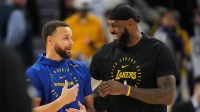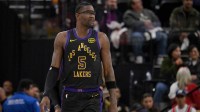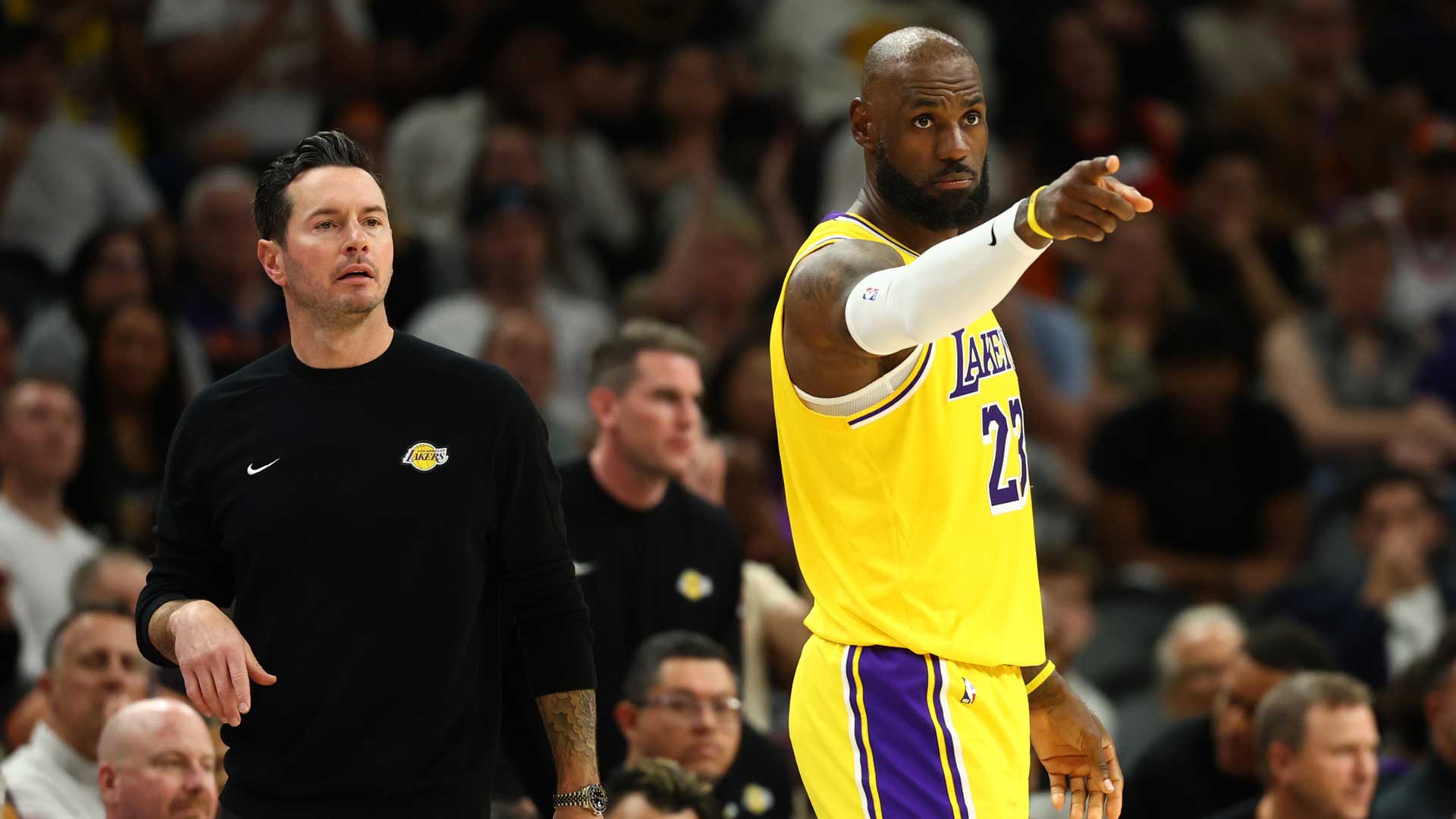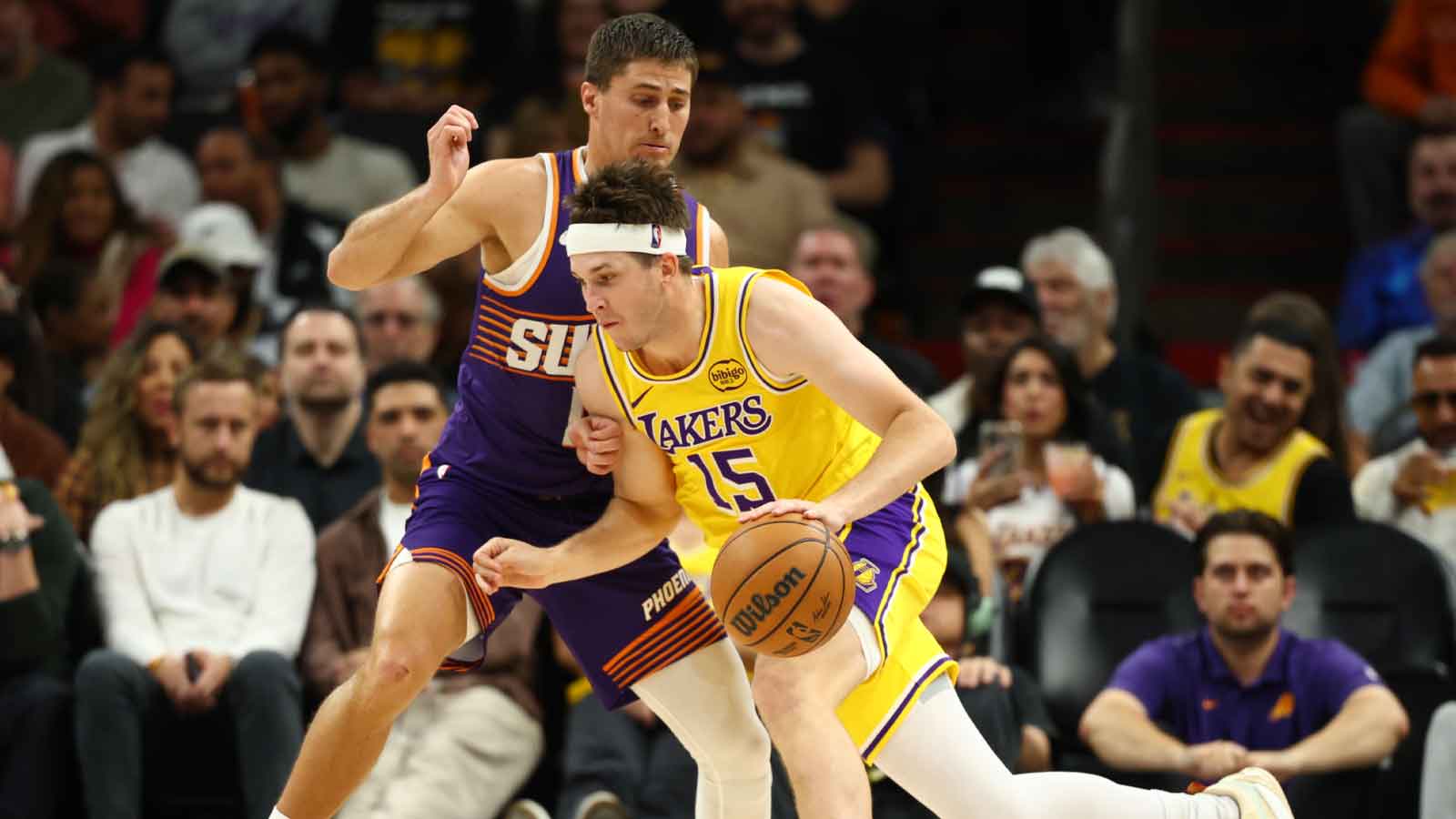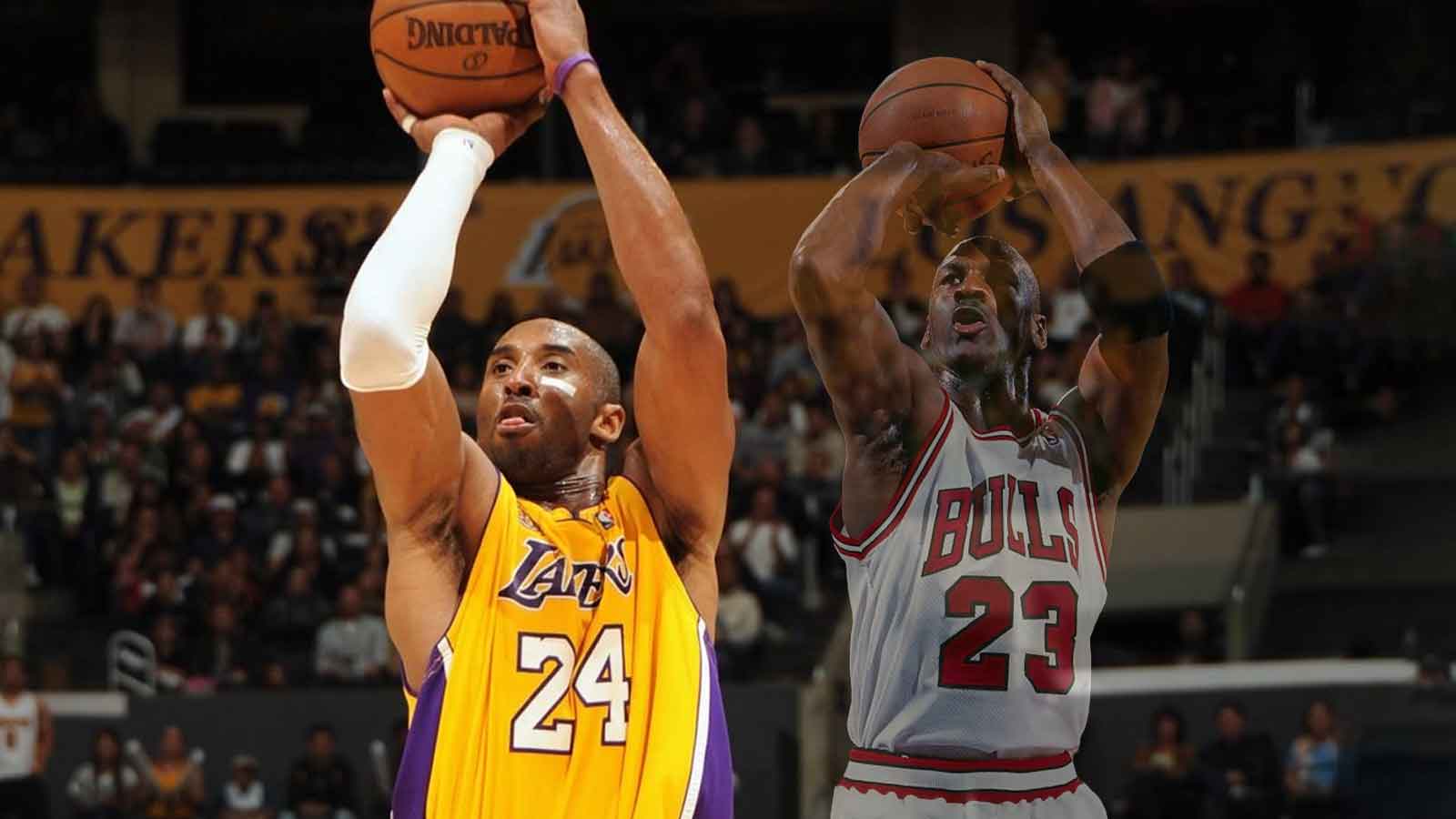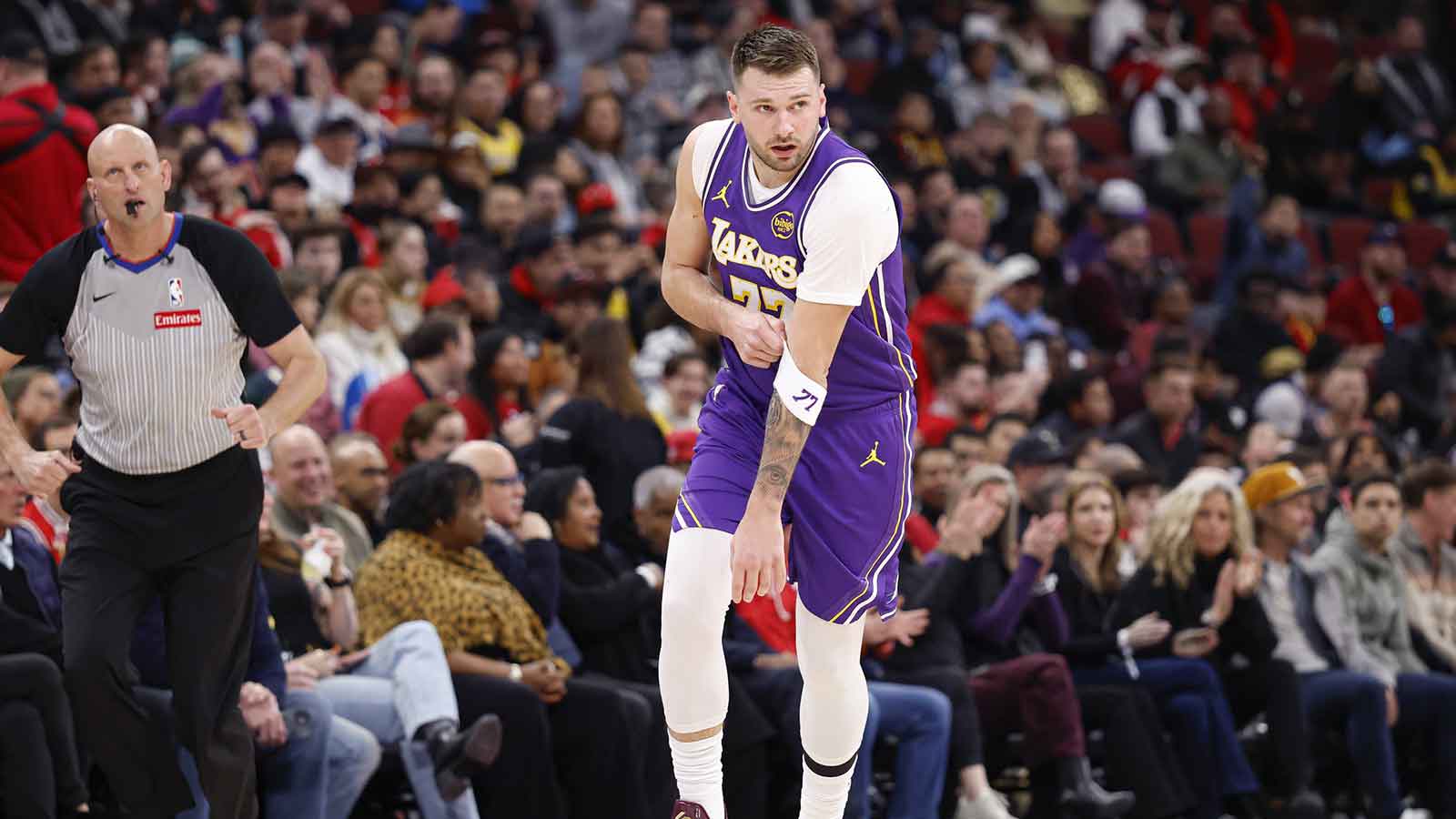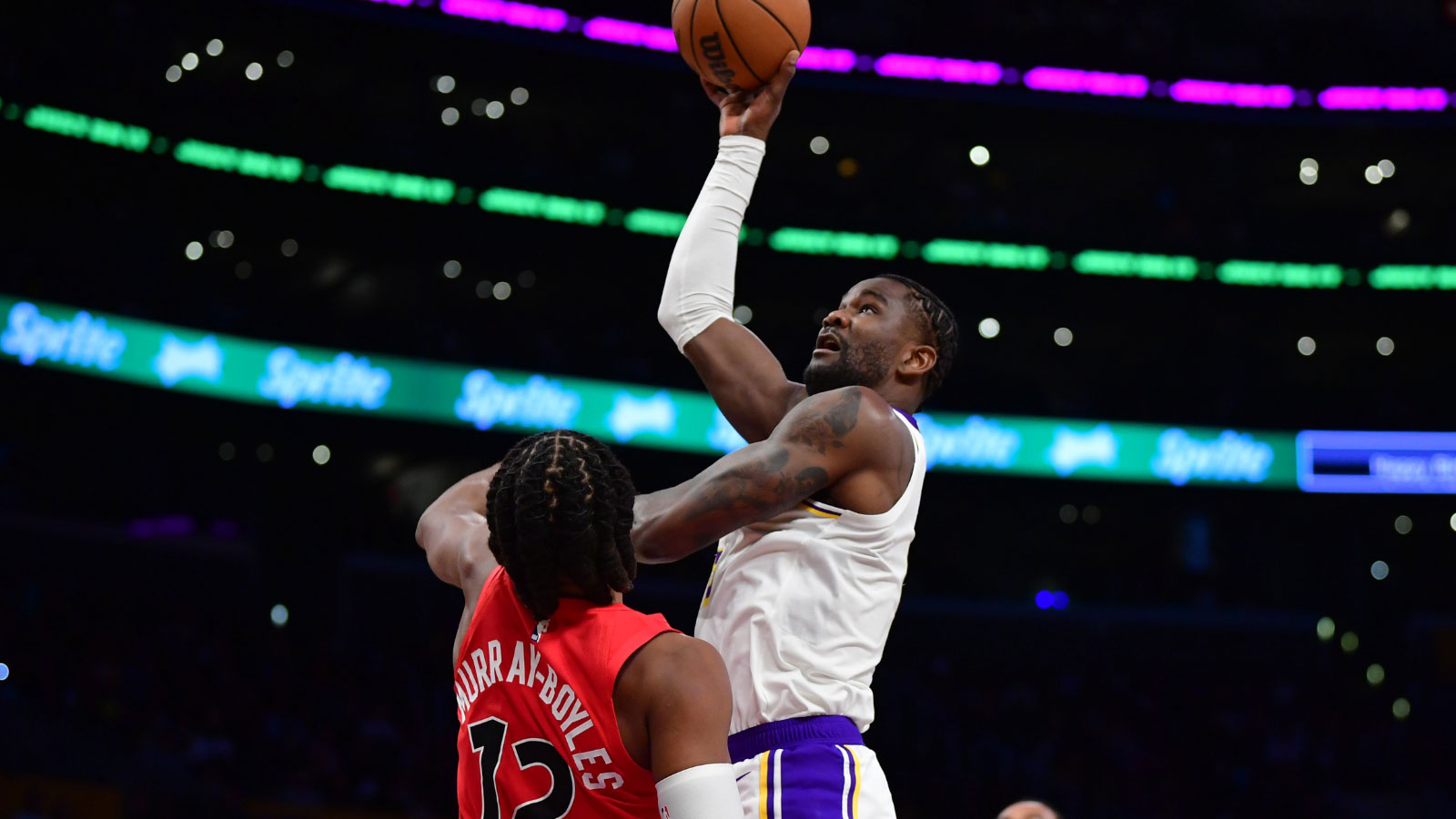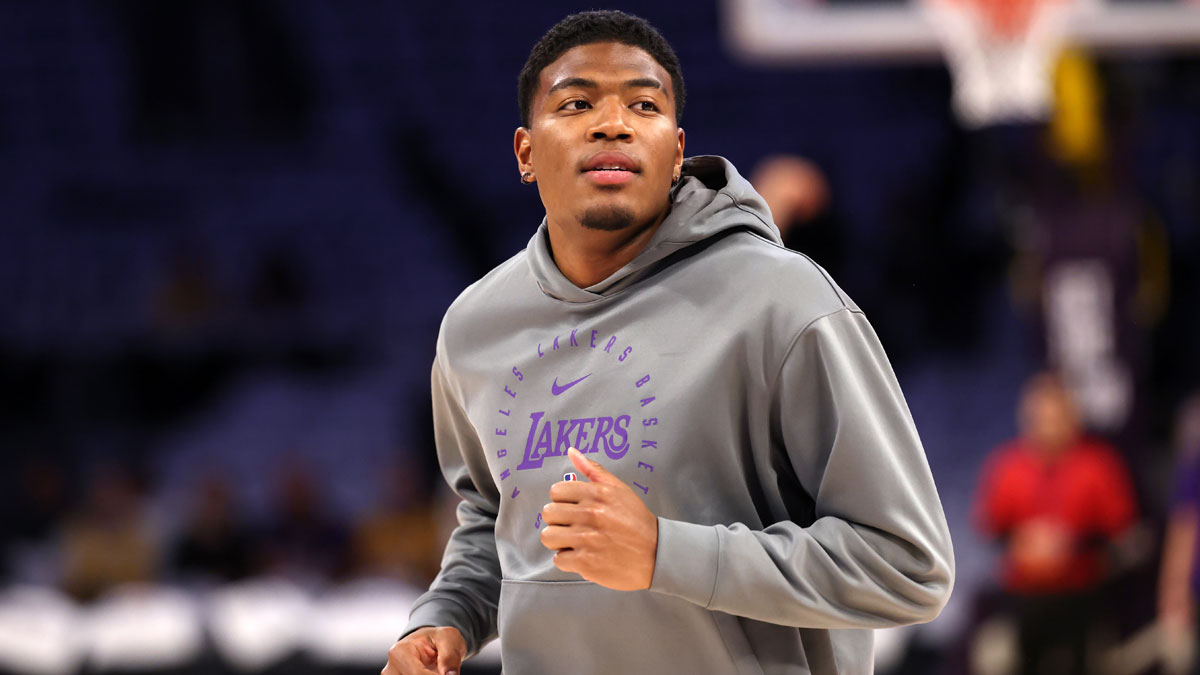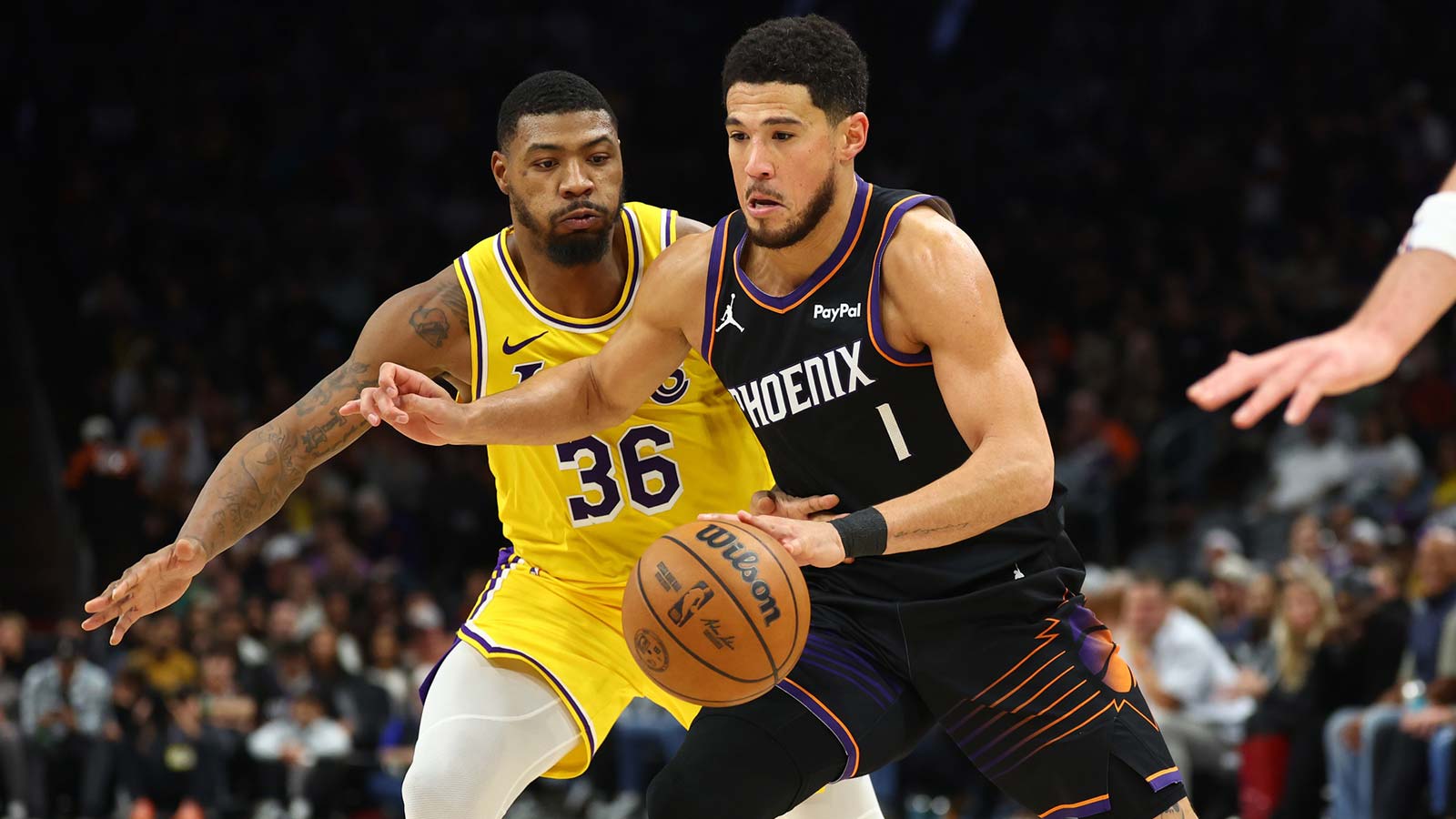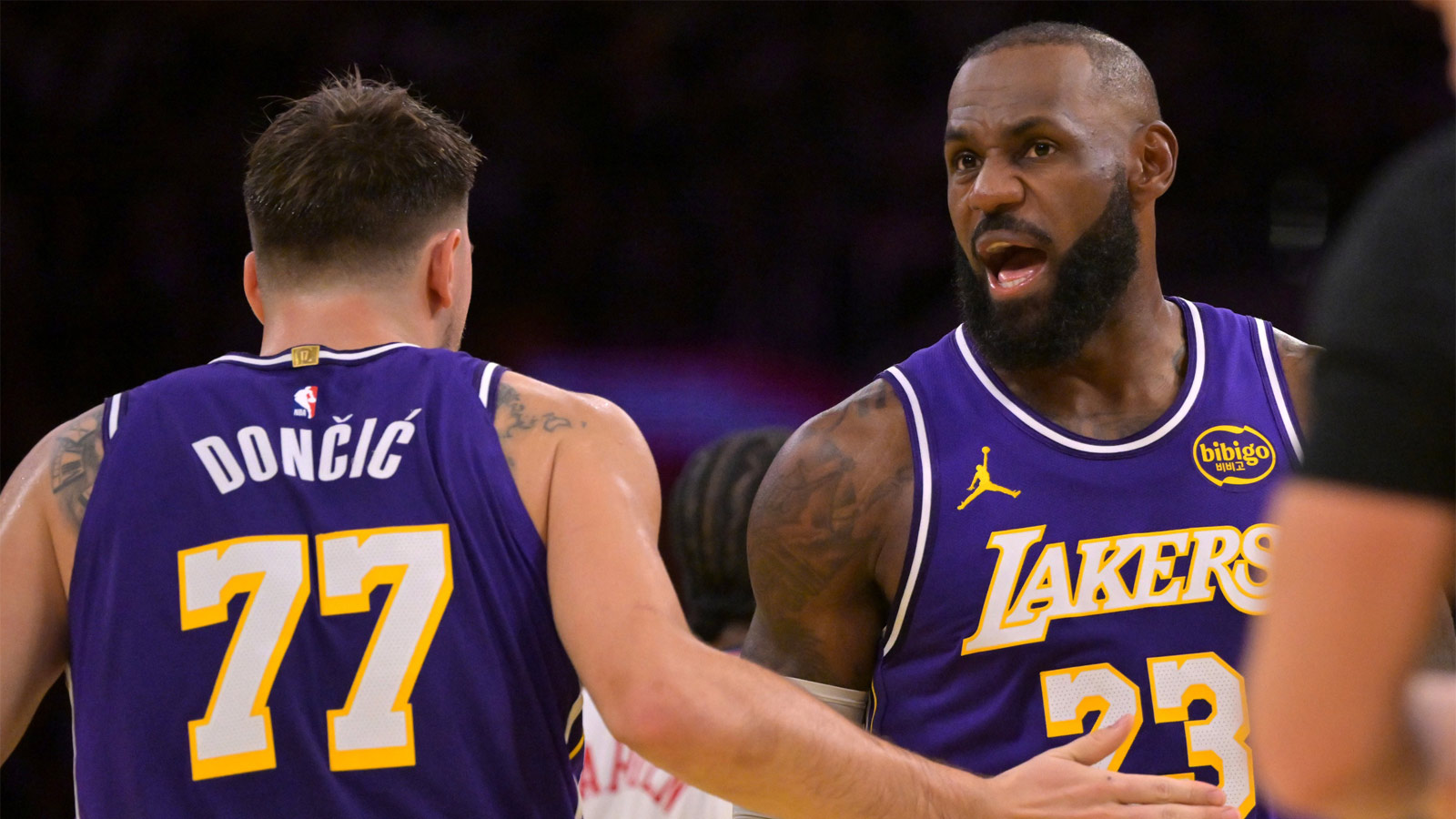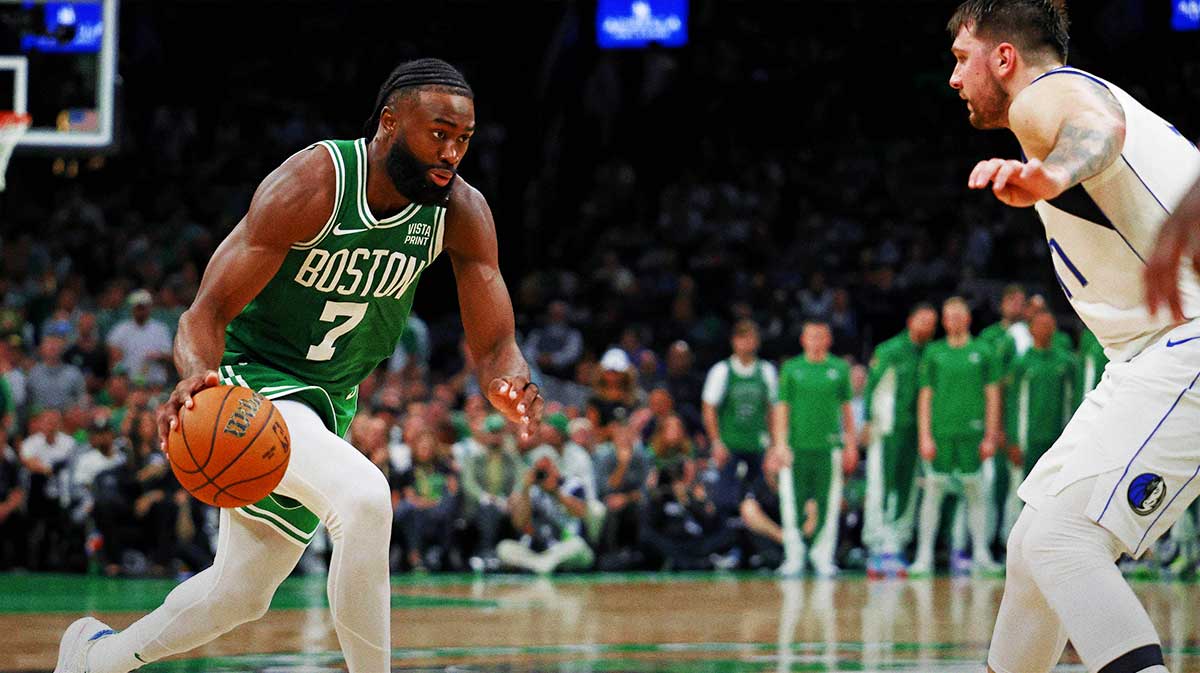As you've surely heard by now, the Los Angeles Lakers are reportedly one of the teams interested in acquiring Kyrie Irving, should the All-Star guard fail to reach an extension with the Brooklyn Nets.
Irving, 30, has a $36.9 million player option for 2022-23. However, if the two sides fail to commit to a long-term partnership, Irving could opt to hit the open market and become an unrestricted free agent, or the Nets could attempt to trade the polarizing point guard to recoup value — either after he opts into his player option or via a sign-and-trade on a fresh deal.
— Chief Hélà 🤞🏾 (@KyrieIrving) June 20, 2022
As The Athletic's Shams Charania noted in his report, the Lakers — who are severely limited in trade assets and financial flexibility — would likely only be able to acquire Kyrie by trading for him after he picks up his option. The Lakers don't have the money to sign him outright (unless he took an unprecedented discount), and a sign-and-trade automatically triggers a hard cap, which would force the Lakers to fill out their roster with all minimum players around LeBron James, Anthony Davis, and Irving.
Here's a breakdown of the five-year max contract Irving is eligible to sign:
2022-23: $42.7 million
2023-24: $46.1 million
2024-25: $49.8 million
2025-26: $53.8 million
2026-27: $58.1 millionNo sane/smart organization would offer Kyrie anything close to that guaranteed $$ https://t.co/eTASVzrSWd
— Tommy Beer (@TommyBeer) June 20, 2022
If the Lakers were to acquire Irving's $36.6 million salary for 2022-23, they would have to send out anywhere from $29.3 million to $45.8 million, per Shams (and the CBA). This money could go to the Nets in a 1-for-1 swap, or be divided up among any other teams involved in the transaction.
Without editorializing too much (in this article) on whether the Lakers should want the talented-but-unreliable Kyrie — and whether he would get vaccinated, which was a prerequisite for Lakers players last season — the idea of acquiring him on a one-year deal does, at least, mitigate some risk. If it works out, great, the Lakers can talk longer-term deals. If it doesn't, the two sides move on after the 2022-23 season.
https://open.spotify.com/episode/4bZVYxusLFA542EmWlcgOm?si=690ace7c9e034891
Unfortunately, the way these things usually work is the team acquiring a star hands out a long-term deal upon the completion of a trade. Irving's player-option gives him leverage: If the Lakers don't want to offer an extension, Irving can take his talents to free agency, where some team will offer a multiple-year contract. Of course, it's theoretically possible that LeBron and the Lakers could convince Irving to play out his deal and put off free agency until 2023.
“LeGM” confirmed by Kyrie 🤣
(via @IAMATHLETEpod) pic.twitter.com/TNw7c1oONs
— Bleacher Report (@BleacherReport) May 21, 2022
All that said, here's a framework for a trade that could work for Los Angeles, should they internally decide to pursue the mercurial seven-time All-Star.
Lakers receive: Kyrie Irving, Joe Harris
Nets receive: Russell Westbrook, Talen Horton-Tucker, 2027 first-round pick, at least one more second-round pick
In this scenario, the Lakers vastly improve their three-point shooting around LeBron and AD, enabling Darvin Ham's “4-out” system to flourish. Both Kyrie (39.3% career from 3) and Harris (43.9%) are, obviously, far superior snipers than Westbrook (30.5%) and THT (27.6%).
Harris' four-year, $75 million deal, which runs through 2023-24, no longer looks quite as reasonable after the 30-year old missed nearly the entire 2021-22 campaign due to ankle surgery. When healthy, though, he's an effective 3-and-D wing — the precise type of player the Lakers lacked post-Russ trade.
Horton-Tucker, 21, who has one year plus a player-option left on his three-year, $31 million contract, saw his trade value dip after a regressive season, but he still carries enticing two-way potential. The Nets are in win-now mode, so they'd likely ask for playable talent in any blockbuster. Personally, I could see Sean Marks being more intrigued by a THT/'27 1st combo than the '27/'29 1st-rounder package. The Lakers have numerous second-rounders in their cabinet to sweeten the pot a little bit more.
Again, this proposal is a) from a Lakers perspective and b) predicated on Kyrie agreeing to play 2022-23 on his player-option — and my own firm belief that the Lakers need to shed Russ.



